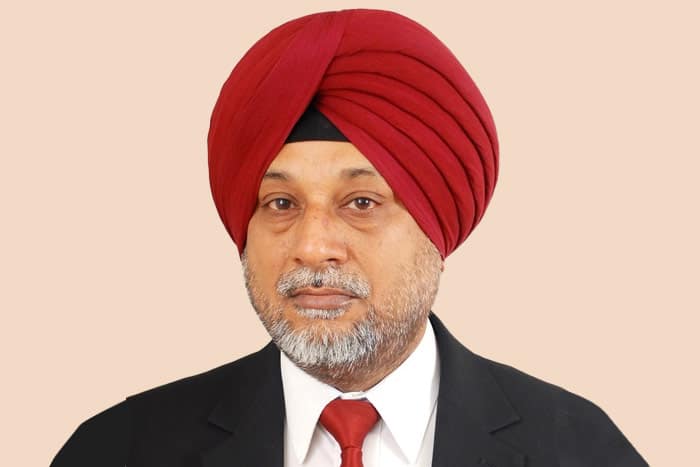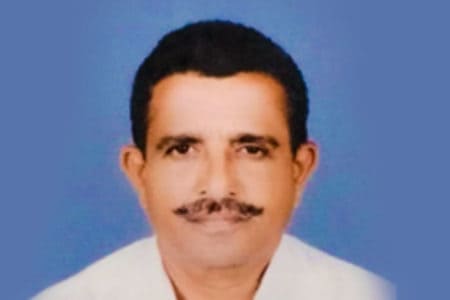- Mithran Sriram | IMAWS
Hinjawadi Industries Association (HIA) was formed in 2008 to represent the companies based in the Rajiv Gandhi Infotech Park (RGIP), Hinjawadi. The objective of the association was to identify common issues like the ones relating to infrastructure, Security & safety, transportation, property taxation, etc., and approach Govt bodies (MIDC, PWD, PMRDA, PCMC, PMC, NHAI) and Ministries to seek their intervention/support to find a resolution.
Over a Decade now, HIA has grown from strength to strength and is known for its commendable work in the space of convenient commuting in addition to providing a clean, safe & secure environment for the employees of its member companies.
In an exclusive interaction with CMR India, Col. Charanjeet S. Bhogal (Rtd), Chief Operating Officer of Hinjawadi Industries Association, speaks on the way ahead for the association and its activities. Edited excerpts.
Q1. Can you share the importance of the infrastructure your association has been fighting for?
Ans. Infrastructure is the bedrock for any development, more so for industries. RGIP in Hinjawadi was a sort of greenfield project with no roads, limited electrification, and other amenities. MIDC pitched in full gear to ramp up these facilities within the first decade. Hinjawadi is at one far corner of Pune. Only one road was built from Pune to Hinjewadi; furthermore, there was no public transportation. Road infrastructure is one of the most basic requirements for industry to thrive. Hence, an initiative was undertaken to identify more avenues to approach RGIP; Hinjewadi, especially RGIP, grew by leaps and bounds and had almost 4 Lakh people operating from here. Today, there are 3-4 different approaches to RGIP, yet they still need to be improved.
Security Infrastructure is equally essential. HIA took the initiative to convince the administration to establish a Police Station in RGIP and continues to extend its support to the police personnel through shared initiatives like Joint Security Task Force vehicles ( JSTF) and traffic wardens to help police control traffic.
Road, Security, and Admin infrastructure are all vital for an industrial area. And as part of their continuous efforts, HIA has been able to initiate the development of a separate Metro rail line from Hinjawadi to Pune City. This is not part of the Pune Metro that is under construction in the rest of the city but an initiative that has borne fruit due to the efforts of HIA. This Metro Rail is being constructed by Tata-Siemens consortium on a PPP Model.
Q2. What is to be done in creating a world-class destination for the IT & ITEs industry?
Ans. The workforce in IT/ ITES is large and diverse, with a fair number of millennials. They deal with clients across multiple countries, which leads to a 24 -hour work cycle at the offices. Hence, a world-class destination for an IT hub is essential.
Firstly, an excellent physical office infrastructure with all amenities to work and relax, including facilities for recreation, food courts, etc., is essential. Most big companies do have these requirements in mind. Coupled with this are the 24 x7 electricity and water demands that need to be met without a break.
Next is the convenience of travel, which requires a decent road infrastructure and commuting facilities, whether public or one provided by the company is imperative.
The third is a secure environment made even more critical by the 24×7 work requirement. Employees must feel safe and comfortable both inside the companies and outside within the Industrial Park.
Fourthly, a clean environment makes coming to work attractive. This would mean trees, gardens, cinemas, malls, restaurants, and the like that would make the entire area a lovely place for the workforce to spend time when not in offices.
The residential spaces are in close proximity to the IT and ITEs parks. So employees could stay closer if they choose to and avoid the travel. Apart from these main ones, there are multiple smaller aspects that individuals may want to see in their workplace – neon signs, direction boards, street lights, police patrolling, and anything to make the place vibrant.
Q3. Tell us about your Metrozip Transport Initiative. How far is this solving the movements of the vehicle?
Ans. RGIP is far from the city of Pune and the suburb of PCMC from where the bulk of the 2.5 lakhs employees and support staff come for work. Additionally, the companies operate in shifts that run till late evening. Furthermore, public transport is not suitable or adequate to cater to the large workforce. The safety of the employees was also a consideration, especially for the late evening shifts. Taking all these into consideration, HIA decided to have its own transportation system to support the employees of its member companies.
The Transport Operations Committee (TOC) was thus formed to undertake this arduous task. The task was mammoth – selecting reliable vendors, selecting routes and bus stops, and managing the timings to ensure the various shifts had adequate transport fleet available and that the employees reached well on time daily. Thus, MetroZip, a Joint Transport initiative of MIDC and HIA with guidance and support from the office of the Transport Commissioner GOM & RTO, was launched in Sep 2014.
The pilot project commenced with 20 buses on four routes with a frequency of six buses on each route and 500 commuters. The web portals for registration, selection of routes, using a payment gateway, and the GPS system for tracking the buses of the MetroZip services are the key technology drivers towards making the commute smooth and comfortable for the employees of HIA member companies.
The keen interest of employees in using this transport saw the Metrozip fleet grow quickly, and on 18 Aug 2016, Metrozip launched its 100th bus. Metrozip Initiative was enlarged with the introduction of two other services in Aug 2016 – Metrozip Green in the non-AC segment operated by Mahindra Logistics and Metrozip Delight in the AC segment run by Prasanna PurpleMobilty Solutions Pvt Ltd.
The demand for more transport facilities led to the introduction of yet another vendor – this time, it was Ford Smart Mobility (FSM) that partnered with Hinjawadi Industries Association (HIA) to launch “Office Ride for Metrozip.” The launch was on 12 Feb 2019.
On 18 Mar 2020, with the announcement of the lockdown for COVID, we had to suspend the Metrozip operations. The companies, too, are yet to commence work from offices in a big way. We look forward to starting the service once the employees return to RGIP and start working from offices.
Q4. What are the exclusivity specialties in RGIP IT Hub which will have a good choice for Global & Domestic Companies?
Ans. RGIP is on MIDC land and has always received support from the Govt. Infrastructure has ramped up and is getting better. Security and Connectivity are added advantages. The Metro Rail work is on and is expected to be operational by 2025. Considering all these aspects, RGIP is a good place for IT and ITEs companies to set up shop.
Q5. How will forming committees help in solving any challenges or problems?
Ans. HIA conducts several initiatives- all through Sub Committees. Sub Committees are formed through volunteers who would like to contribute towards improving RGIP. Sub Committees help focus on the issue dealt with by the Sub Committee and hence achieve greater success. I can tell you a little about our Sub Committees:-
Infrastructure Committee:
Since its inception, the Committee has driven the growth of road infrastructure within RGIP as also on the approaches to RGIP. It has taken years of constant interactions with MIDC, PMRDA, PWD, PCMC, PMC, and Ministries at GOM and GOI to fulfill many of our infrastructure desires. The Committee continues to liaise with agencies and Govt offices to ensure the infrastructure growth is not stalled.
Security and Safety Committee:
- It was observed that the police needed to be adequately equipped to provide the desired safety to companies and employees. HIA thus started the Joint Security Task Force vehicles to add to the police security available at RGIP. JSTF vehicles visit companies to check Security and provide a great sense of safety and comfort for employees when moving on roads within or outside RGIP.
- Traffic Control: It was realized that the number of vehicles coming into RGIP required traffic control and the traffic police. HIA thus started deploying Traffic Wardens in conjunction with Traffic Police, all with an aim to make the commute of our employees easier and smoother.
Transport Operations Committee:
In order to provide a safe, efficient, and punctual bus service to the employees, HIA started the Metrozip Bus Service – a combined service for employees of all member companies. Buses ferried employees from the farthest corner of Pune and dropped them back home after a hard day’s work at RGIP. The service had to be suspended due to companies starting WFH during COVID.
Clean and Green RGIP Committee:
With the construction of offices and residential complexes on the rise, it was soon realized that RGIP needed to be greened if there had to be a clean and healthy environment to work in. The Committee thus took upon itself the responsibility of planting trees and beautifying traffic circles and open spaces. Regular talks by environmentalists were also organized to spread awareness. In addition, keeping the roads and other areas free of garbage was also a challenge taken up by this Committee. Many beautified places were sadly destroyed due to the Metro work. The same would be resurrected once the Metro work is completed.
HR Co-ord Committee:
To share best HR practices and other functioning of companies, this Committee was formed, and HR professionals have been meeting and interacting to achieve this purpose. Talks and book reviews on HR-related topics have also been regularly conducted.
Q6. Tell us about the clean and green RGIP committee & how it helps in ensuring adequate greenery for clean air.
Ans. We have already discussed the initiatives taken up by the Clean and Green Committee. The Committee and Forest Dept have taken upon themselves the task of greening the hills in RGIP. Alongside, tree plantation drives within the park and beautifying areas around traffic circles were also initiated. Lectures and seminars are conducted on the need to reduce traffic and hence pollution. Displays took up awareness drives regarding pollution on electronic boards.
Unfortunately, some of our beautified areas were destroyed as overhead HT lines had to be put underground for the Metro work to start. The Sub Committee is determined to get them back in shape once we complete the Metro work. The Committee has kept its focus sharp on the need to keep RGIP Clean and Green.













